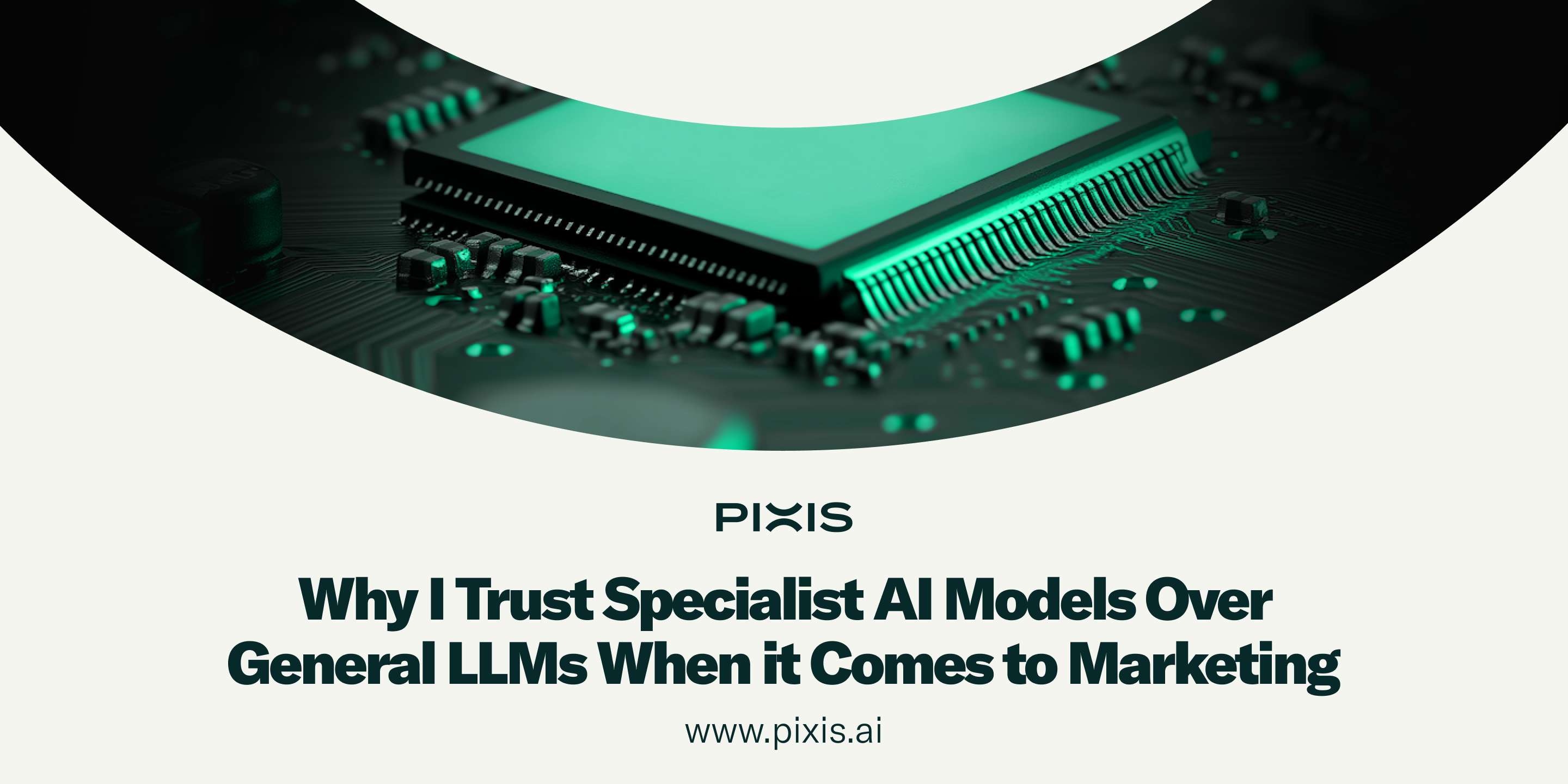When ChatGPT first landed on my screen, I was hooked. Like most marketers I know, I treated it like a digital slot machine—feeding it prompts for briefs, summaries, headlines, even strategy notes. It felt like magic… until it didn’t.
The moment I needed precision or even just recommendations based on real data that I actually used to do my job, it hit its limits.
That’s when I began exploring specialist AI models. These aren’t the headline-grabbing LLMs that dominate tech news or power your favorite chat apps. They’re quiet workhorses, trained exclusively on domain-specific data to solve deep, narrowly-defined problems.
Basically, because they’re trained on specific data for a specific purpose (as opposed to just ‘the entire internet’) they do more than chat: they actually help with specific use-cases.
Here are six examples that changed how I think about AI that show that when you need something specific, specialist models often outperform general-purpose ones by a wide margin
Six Specialist AI Models That Outperform General LLMs
- AlphaFold
Solved a 50-year biology puzzle—predicting protein structures. It beat the next-best method by over 2x at CASP-14, compressing years of lab work into minutes. - IDx-DR
Brought instant diabetic eye screening to rural clinics. FDA trials showed 87% sensitivity and 89% specificity—no specialists needed. - GraphCast
Delivers 10-day global weather forecasts in under a minute—outperforming Europe’s top physics-based model on 90% of targets. This isn’t just speed; it’s life-saving accuracy. - Med-PaLM 2
Scored 86.5% on US medical exams—board-level performance. Doctors preferred its answers over GPT-3.5 in 65% of cases. Already in trials at major hospitals. - InternLM-Law
Outperformed GPT-4 by 15 points on legal reasoning benchmarks, excelling at complex tasks like statute analysis and contract interpretation. - Prism (our performance marketing LLM)
Built for marketers. It connects directly to ad platforms, analyzes billions of rows of ad performance data, and makes actionable budget moves. In one test, it shifted ₹30,000 from a weak ad set to a strong one, boosting ROAS by 18% and cutting CPM by 22%—all in under 48 hours, automatically.
Why Specialist Models Outperform General Ones
It’s not just that specialist models “know more.” It’s how they’re built—and who they’re built for.
Here’s why they consistently beat general LLMs like ChatGPT in high-stakes work:

Other Specialist Marketing AI Models to Know
It didn’t take long for me to spot a growing wave of AI models built purely for marketers—each solving a very specific piece of the puzzle.
Adobe’s AI Agents help brands automate audience targeting, creative production, and campaign optimization within their marketing clouds.
Jasper is popular among marketers for generating brand-safe content at scale across blogs, ads, and social posts.
Anyword focuses on fine-tuning marketing copy to improve conversions, often using predictive scoring to test variations.
LTV.ai personalizes email and SMS campaigns for retail brands by analyzing purchase behaviors.
Typeface Arc helps marketers plan full cross-channel campaigns by learning from past content performance.
Omneky, meanwhile, specializes in ad creative generation and testing across paid media platforms.
“But Sam Altman Says GPT-5 Will Pick the Right Sub-Model for Me. Won’t That Mean I Don’t Need to Choose a Specialist??”
OpenAI’s roadmap does promise an agent that “auto-selects the best skill for your prompt,” aiming to hide model selection behind a single ChatGPT UX (see Altman’s February-2025 interview on the GPT-5 naming overhaul). 9meters.com
I’m cheering for it—but even Altman frames that as orchestration, not replacement. A future GPT might route to a protein-folding sub-network that still looks a lot like AlphaFold under the hood.
When Should Marketers Use Specialist AI?
If your work involves:
- Ad spend optimization or budget shifting
- Automated bidding or campaign pacing
- Real-time creative testing or reporting
- Cross-functional KPIs or complex attribution
…it’s time to look beyond generic models.
Specialist tools like Prism even let you sync metrics across tools like Meta, Shopify, and Google Sheets.
How To Stop Working For AI and Start Working With It
General-purpose LLMs are great at putting together strings of text that sound plausible. But if your job depends on precision, speed, or regulatory correctness, a specialist AI with access to the right data will outperform them every time.
In the rush toward general AI and AGI, it’s easy to forget that most valuable AI breakthroughs won’t come from a “one model to rule them all” world, but from narrow, finely-tuned tools that deeply understand one thing, and do it better than anything else.
Curious about specialist models in marketing?
I highly recommend Prism if you want to see what true domain-specific AI looks like in action.
If you’ve tried a specialist model that blew you away, drop me a line. I’m always collecting new favorites.

